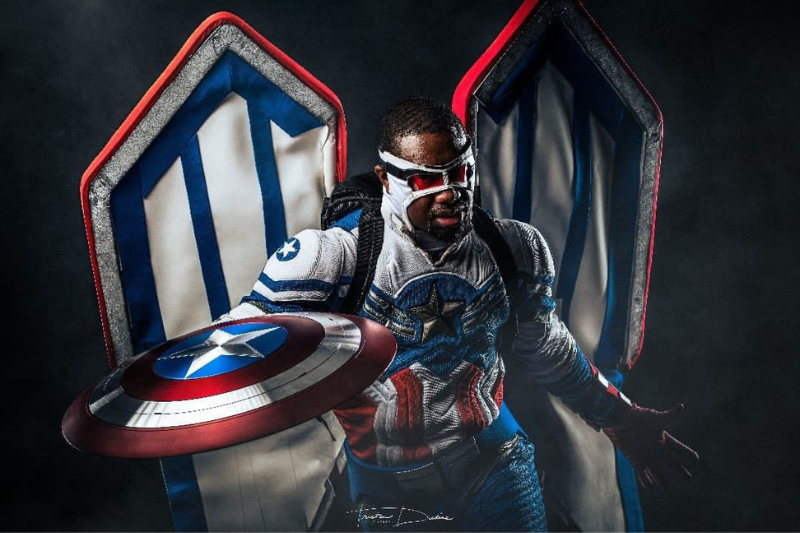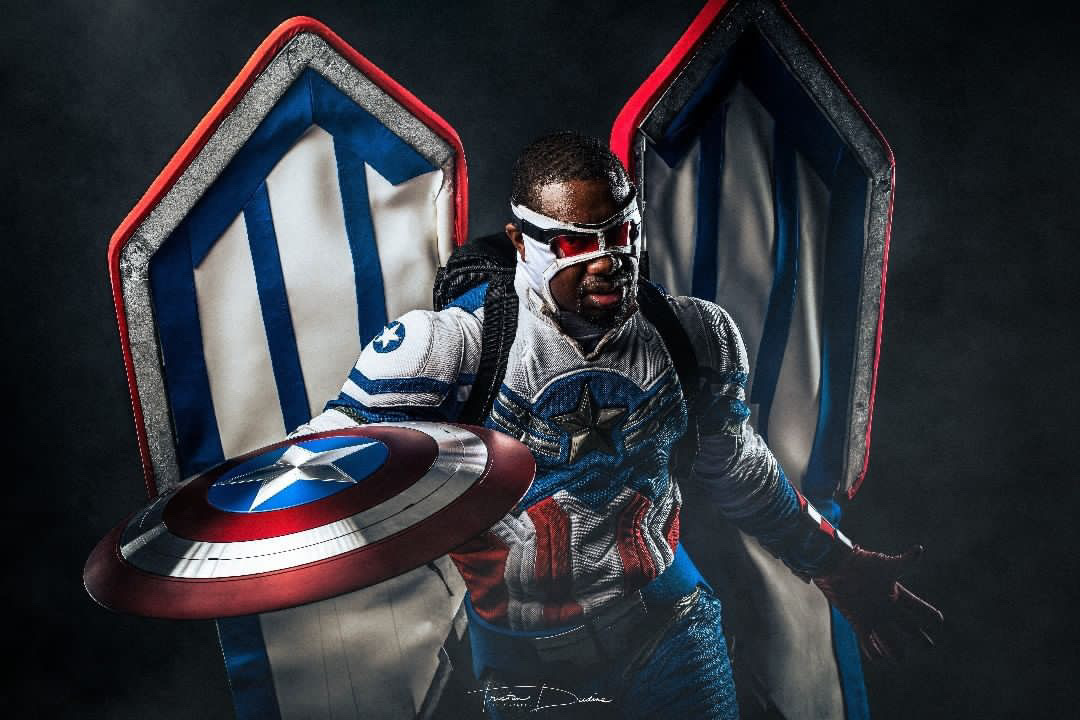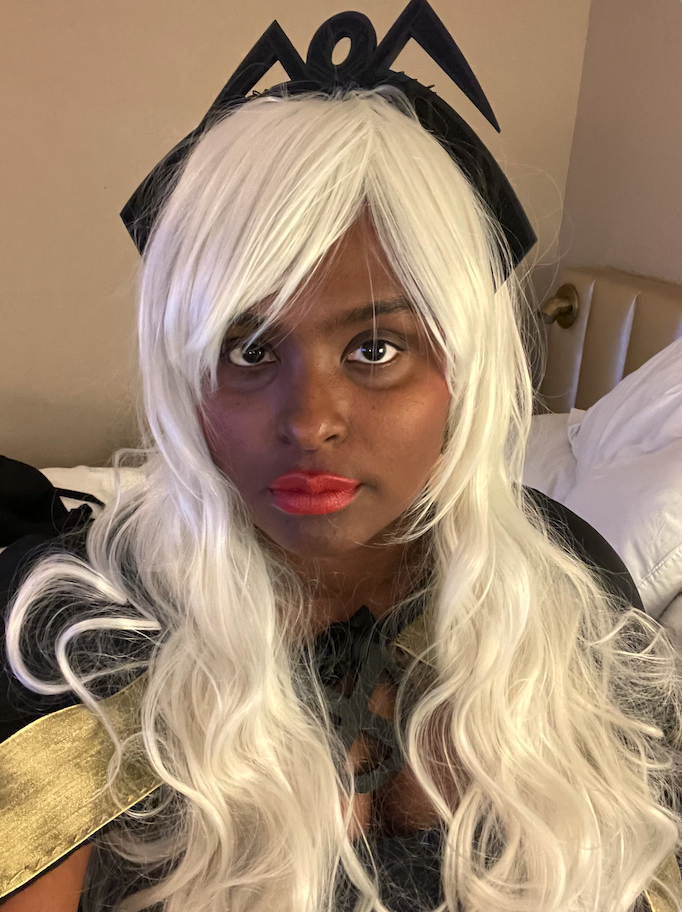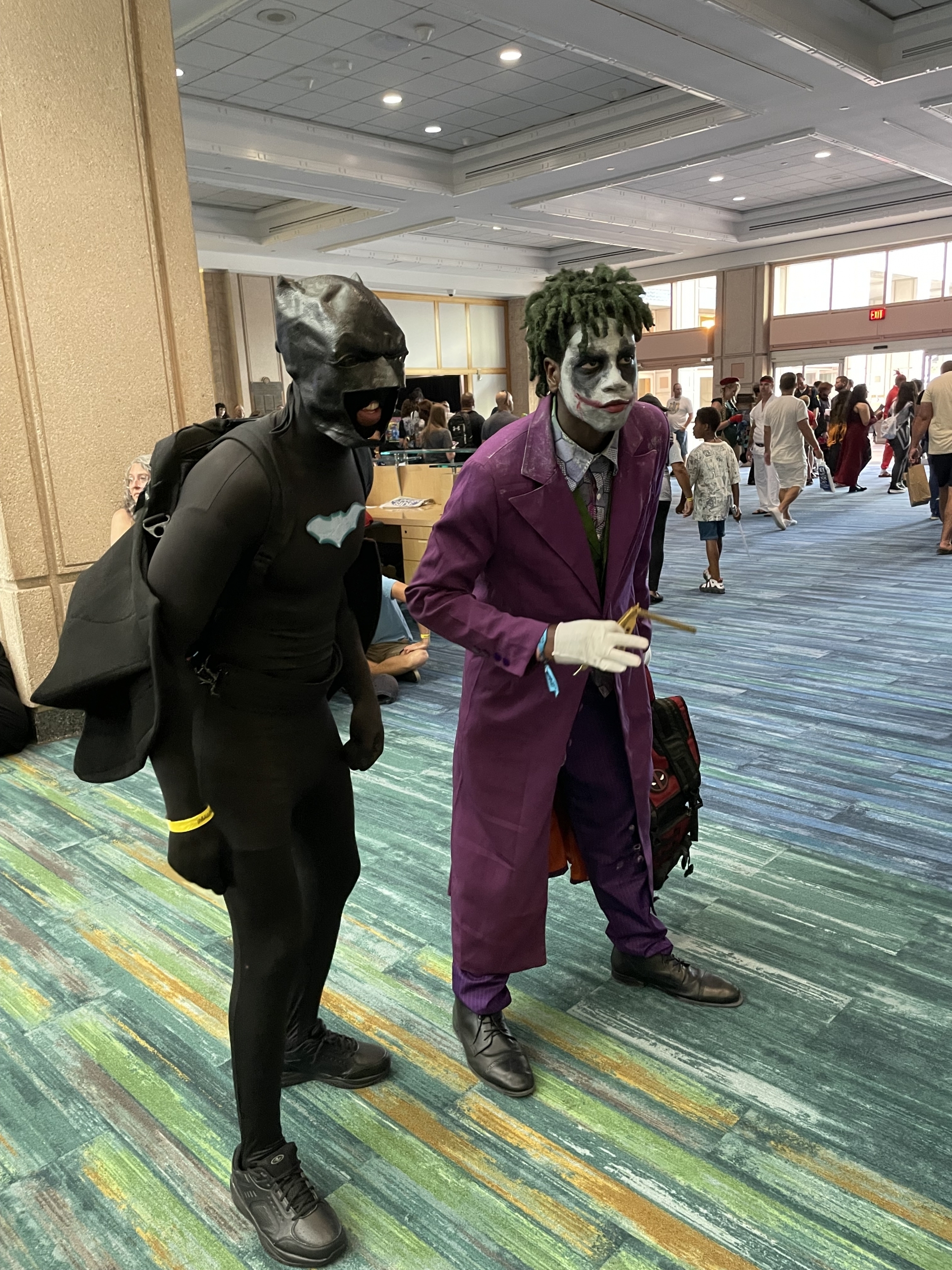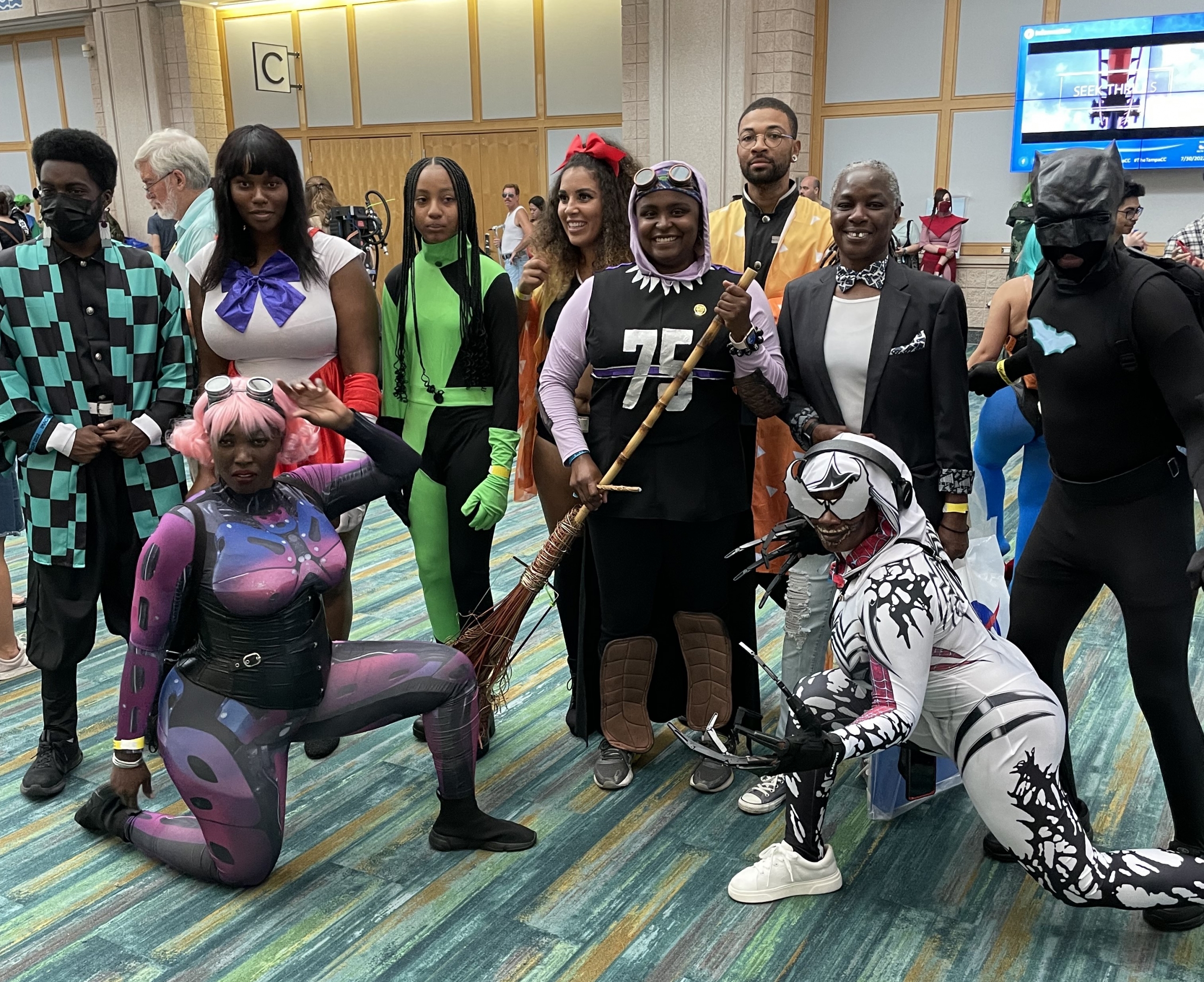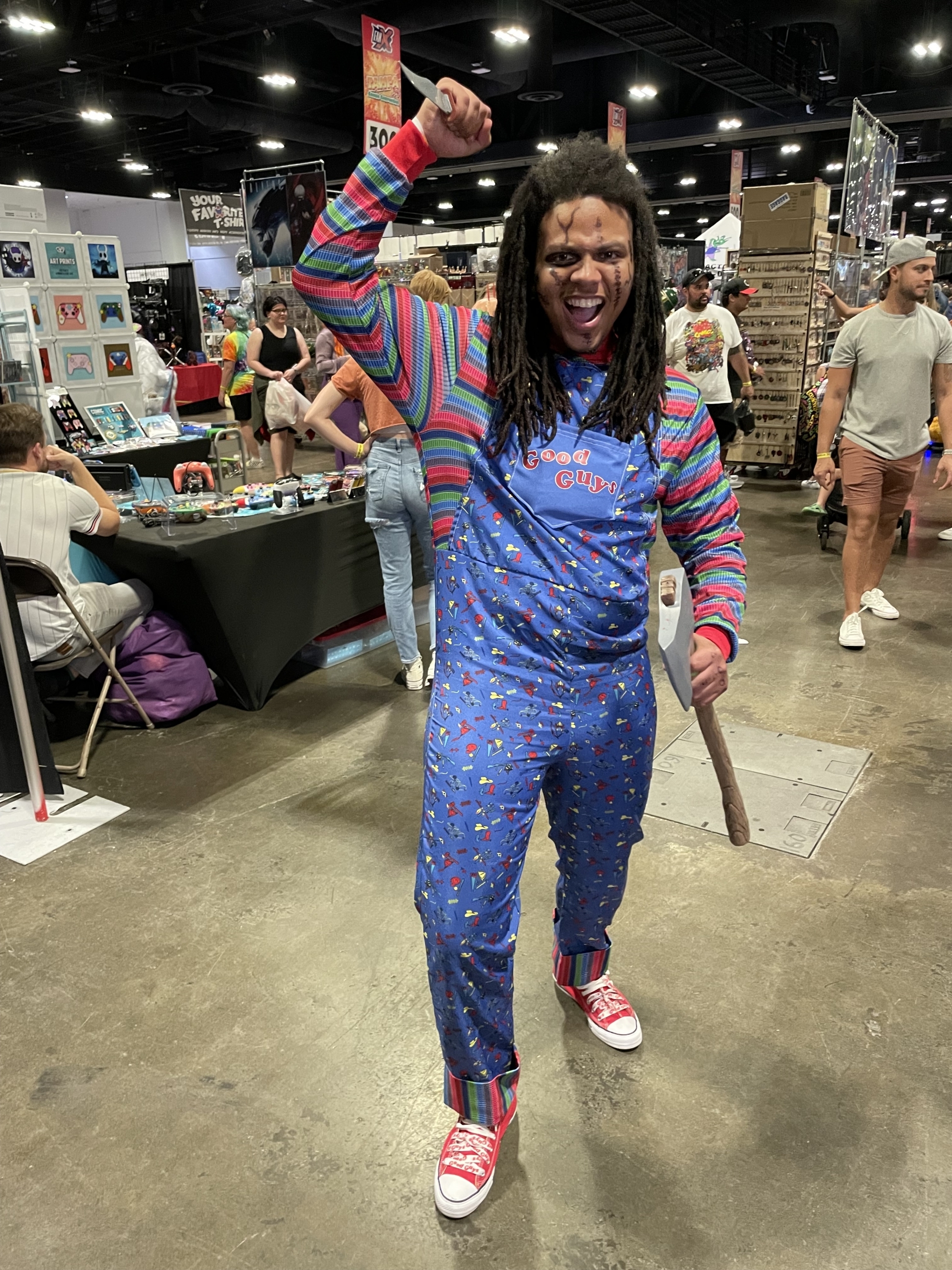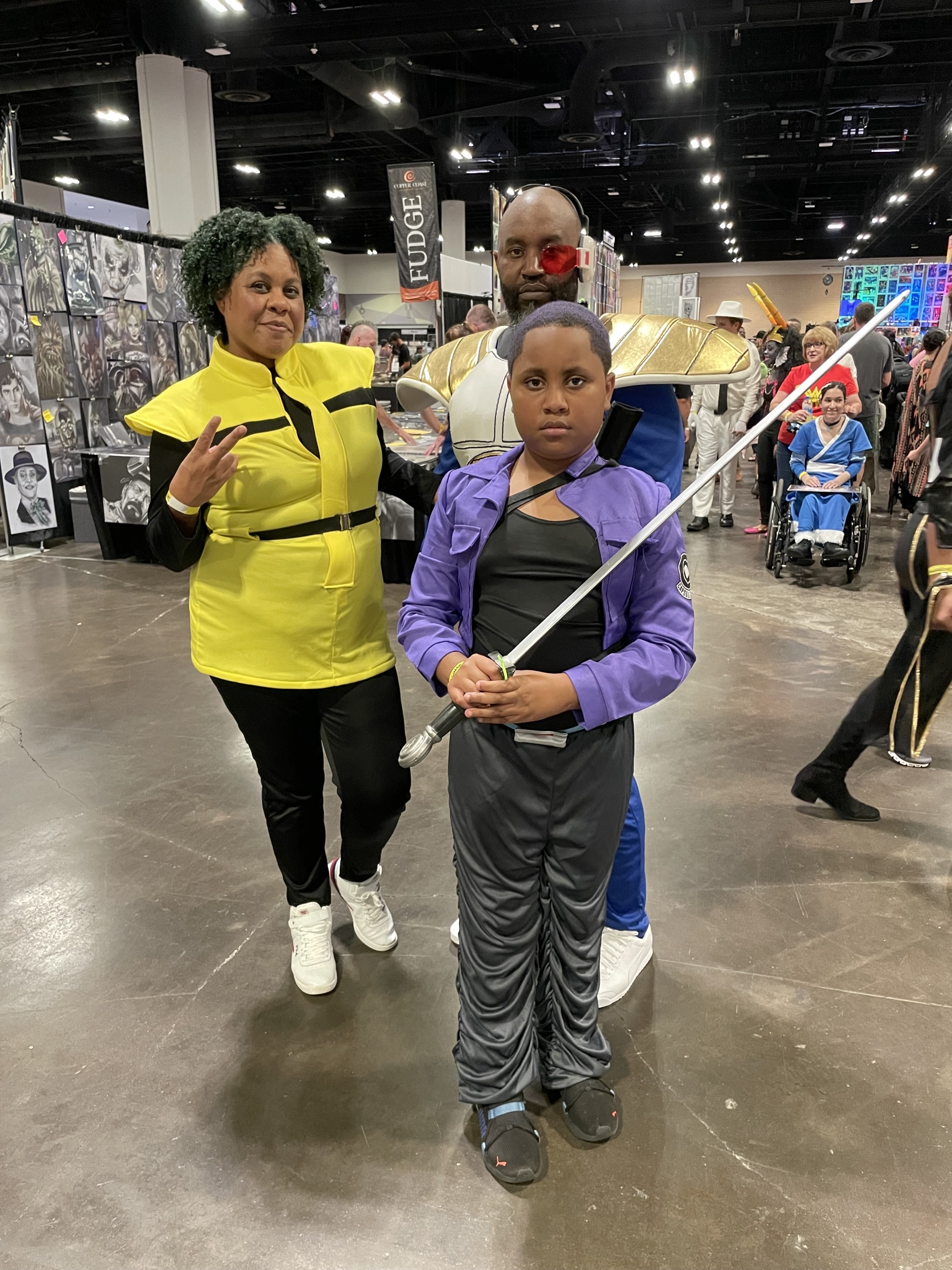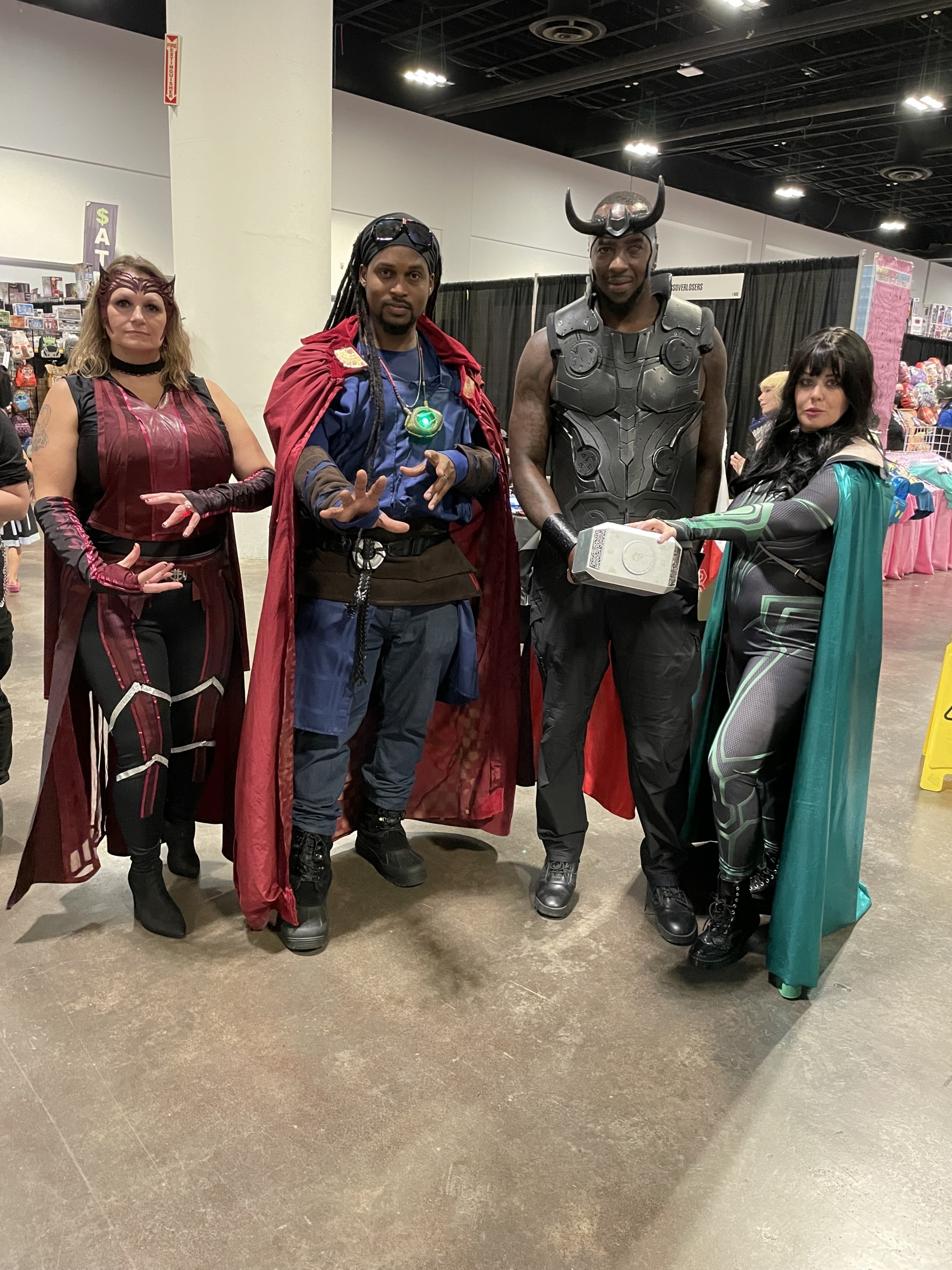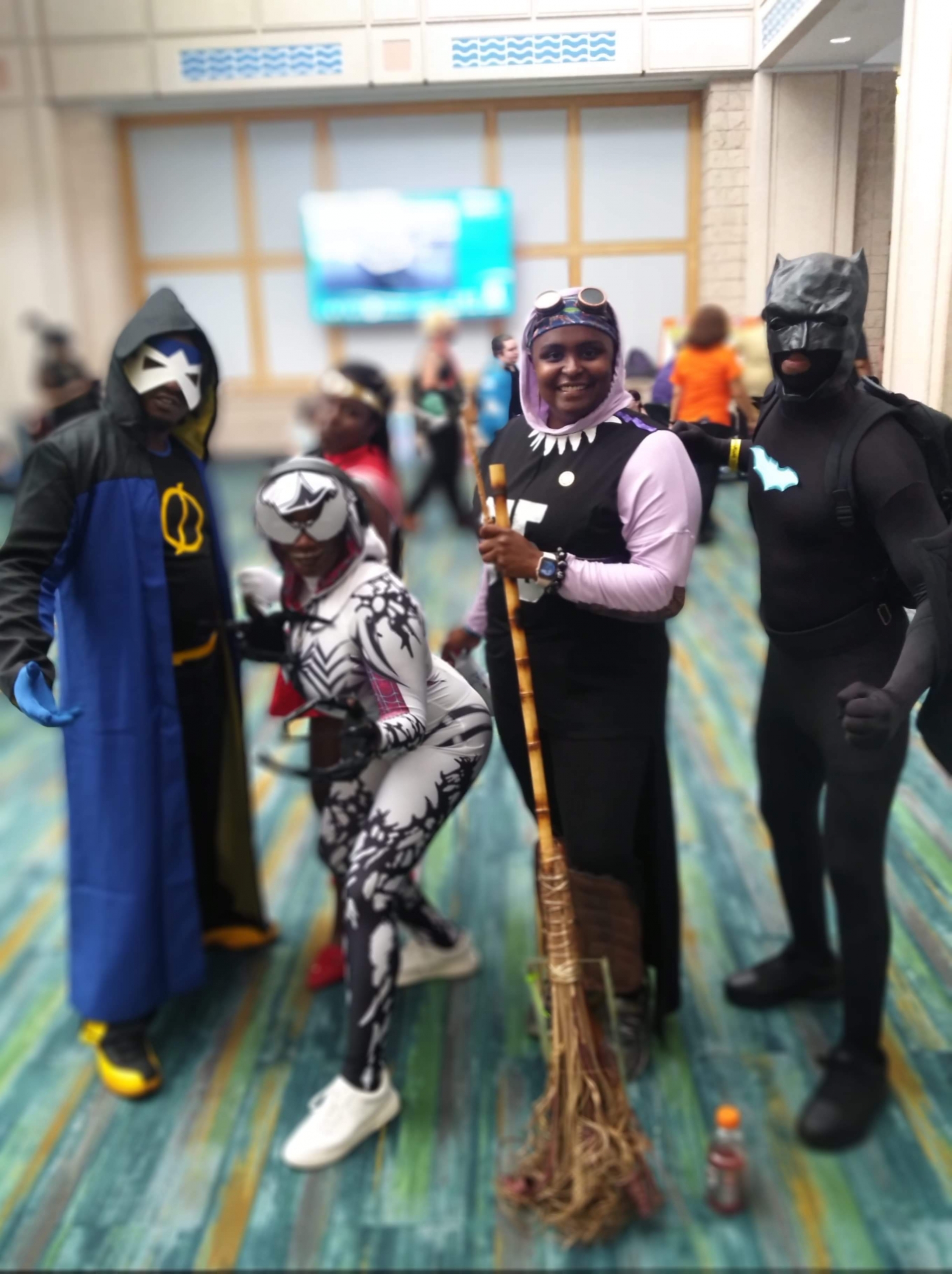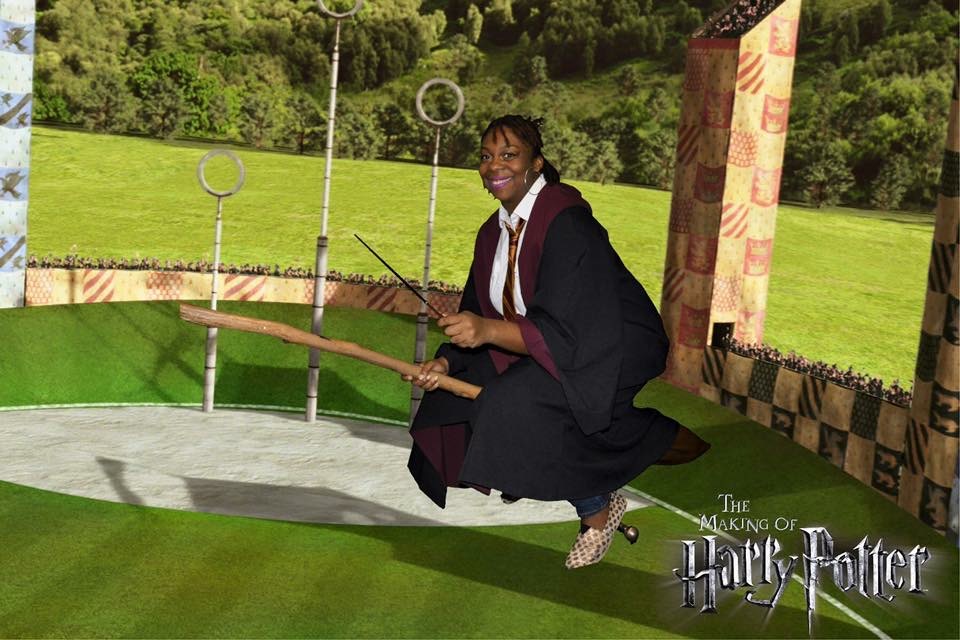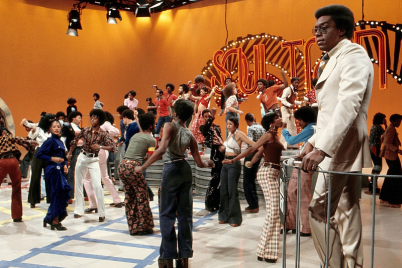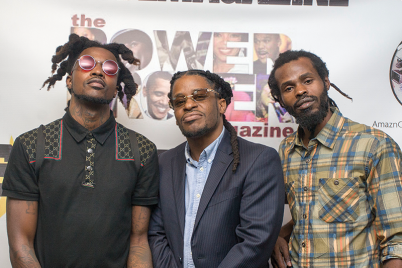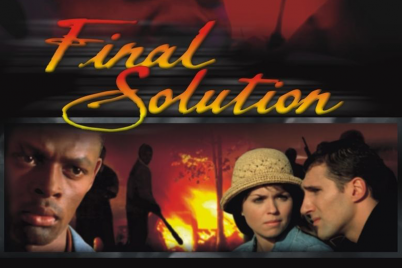Blerds, or Black nerds, are pushing back against centuries-old stereotypes, and claiming space the Black community was long denied. Pictured is Tampa graphic designer Kristopher Paul as Sam Wilson’s Captain America.
BY HILLARY VAN DYKE, Contributor
ST. PETERSBURG — According to Dr. Christopher Turk on the television show “Scrubs,” a Blerd is a Black nerd, and I have been a certified Blerd my whole life. In my experience, being a nerd was not cool until this modern mainstreaming of nerddom.
St. Pete nonprofit leader Dr. Chris Warren said, “It’s been an interesting journey watching the evolution of the… nerd.” Nerds have gone from someone who would be bullied to someone who could be seen as a sex symbol.
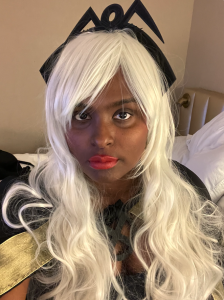
St. Pete DEI practitioner Hillary Van Dyke as Storm from “X-Men”
St. Pete bartender Sharrell McKinney noted how being a nerd became a “subgenre of knowledge people were suddenly into,” citing instances in pop culture that led to its acceptance like Marvel Comic Universe films or rappers like Megan Thee Stallion referencing anime characters in their music.
As an adult, I attended Tampa Bay Comic Con (TBCC) in 2012, which was my first time ever attending a comic convention. At this event, nerds from all over the country attend celebrity guest panels, a massive vendor market, and lots of different topical sessions.
I was blown away by the folks in cosplay, which is costume play where the person is dressed as a specific character, often in homemade costumes. Most attendees do not come in costume, but those who do are a sight to behold. Personally, I never quite had the bravery to cosplay myself, despite interest in it. (Unless you count wearing a Hogwarts robe over yoga pants and a t-shirt at Universal Studios.)
However, when Marvel released “Black Panther” in 2018, I would say I unlocked my inner cosplayer. Later that year, I did my first official cosplay, dressing as Hermione Granger from “Harry Potter” at LeakyCon in Dallas.
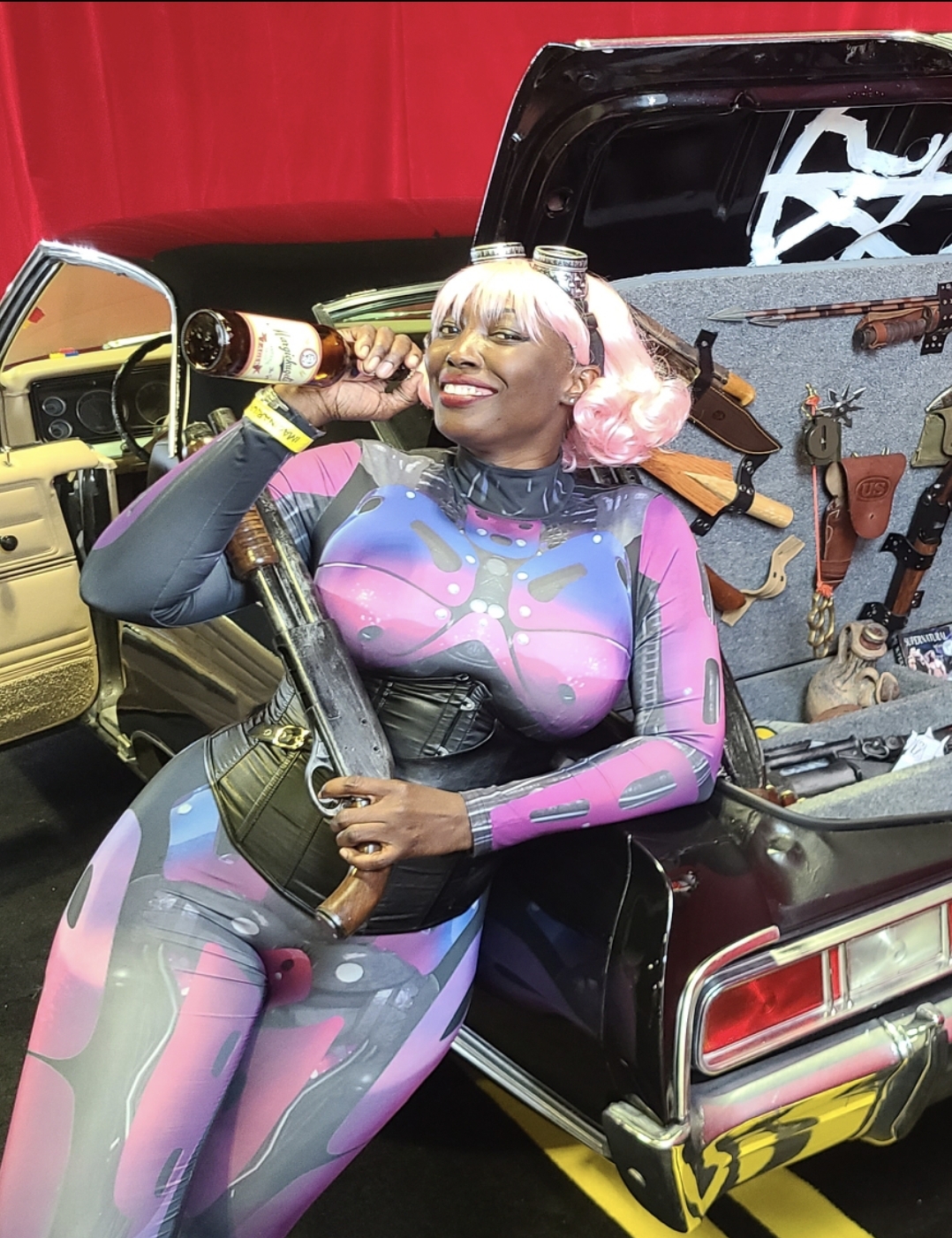
St. Pete bartender Sharrell McKinney as a cyberpunk cosplay character she created.
I officially considered myself a full-fledged cosplayer at Clearwater Comic Con in 2019 because I created — not purchased from a store — a Quidditch player from Wakanda, blending two fandoms I love. I even handmade the broom!
But this year, TBCC was special. Not only were there more intergenerational Black attendees than I had seen before, but so many of them were also cosplaying. This year was also my first time cosplaying at TBCC where I reprised not only my Wakandan Quidditch player but also a Storm costume. (I technically started envisioning this costume in 2017 but never actually put it into play until Halloween 2021.)
Warren always thought cosplay was really cool and eventually became “brave enough” to do it. He introduced his “daughter to it early so she wouldn’t have any fear of it, and she took to it immediately,” he said.
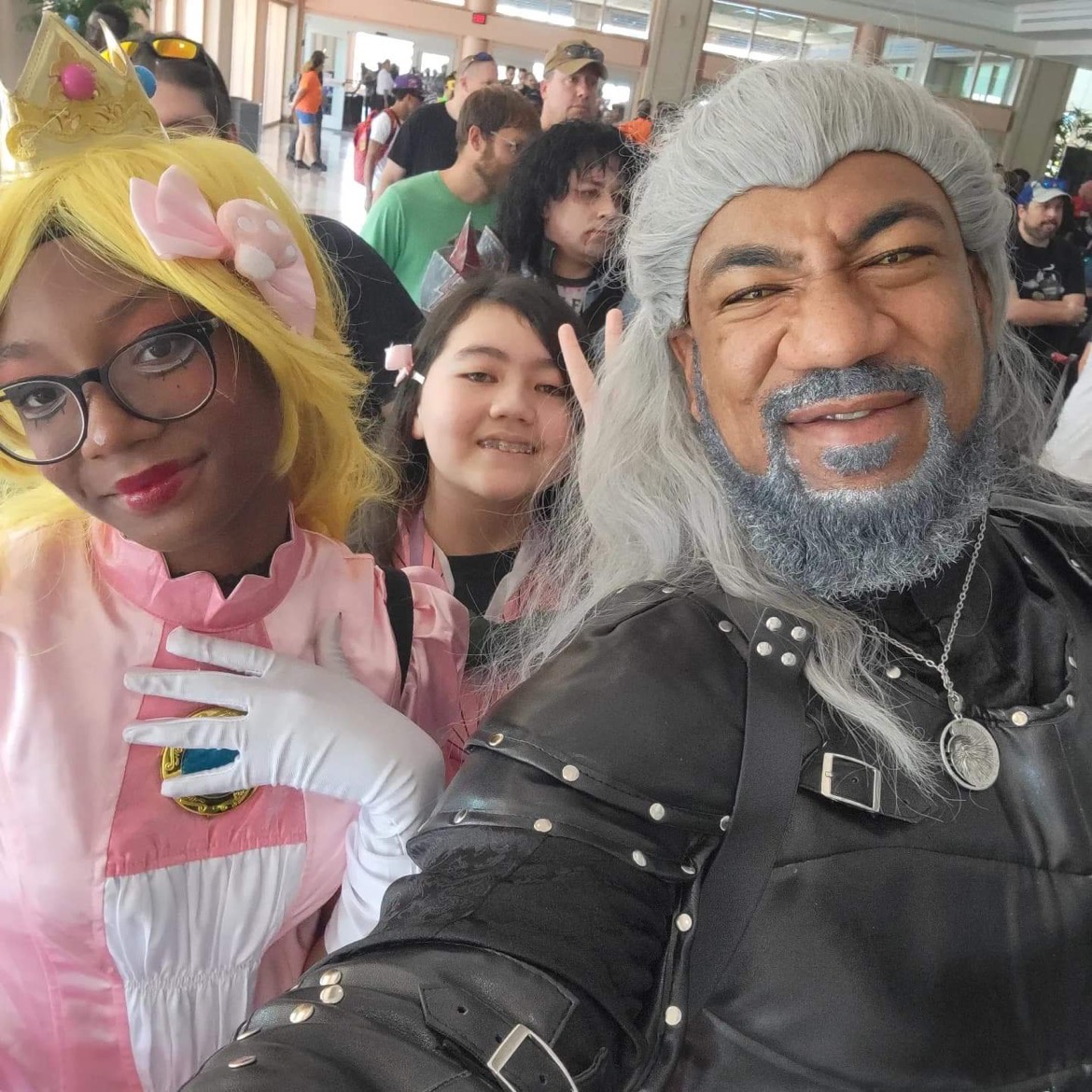
St. Pete middle school student Zuri Warren (dressed as Princess Peach from Mario Brothers) and nonprofit leader Dr. Chris Warren (dressed as Geralt of Rivia).
Zuri Warren, a St. Pete middle school student, explained that cosplay “makes me really happy,” a sentiment with which the other cosplayers I spoke to agreed. Furthermore, cosplaying allows for a brief freedom from reality.
McKinney said initially, for her, it was about “being able to become someone different,” as her interest in cosplay was born out of bullying she experienced in school. Largo business analyst Chris Manning said, “I like it because of the anonymity. I can decide how much of myself to put out there. I like it because I’m not being judged.”
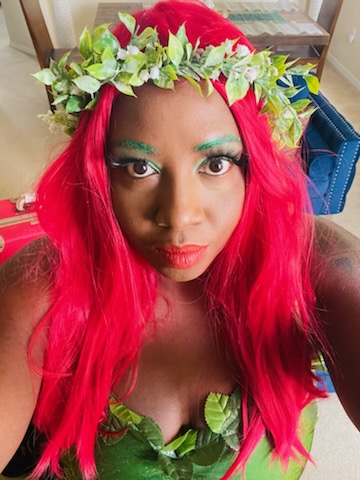
Orlando area business owner Anika Aleong as Poison Ivy.
Orlando area business owner Anika Aleong said cosplay is like “taking a break from herself” and having an “out-of-body experience.”
Connecting to other people is also part of the interest in cosplay. For Aleong and Warren, it allows them to bond with their children. They all like the respect in the cosplay community, and the responses when a costume is done well are always validating.
Why does any of this matter? Because I think about how long it took me to finally be the fullest, freest version of myself who put my creative juices to work as I squashed the construct of “that is white people stuff” and entered this space where I could exude Black girl joy.
Aleong said, “A lot of us grow up and lose our sense of play,” but cosplay allows us to unlock that. Tampa graphic designer Kristopher Paul loves the “freedom of expression, art, and creativity” cosplay allows and that he can show off his talent. Cosplay is ultimately a source of art, a source of freedom, and a source of confidence.
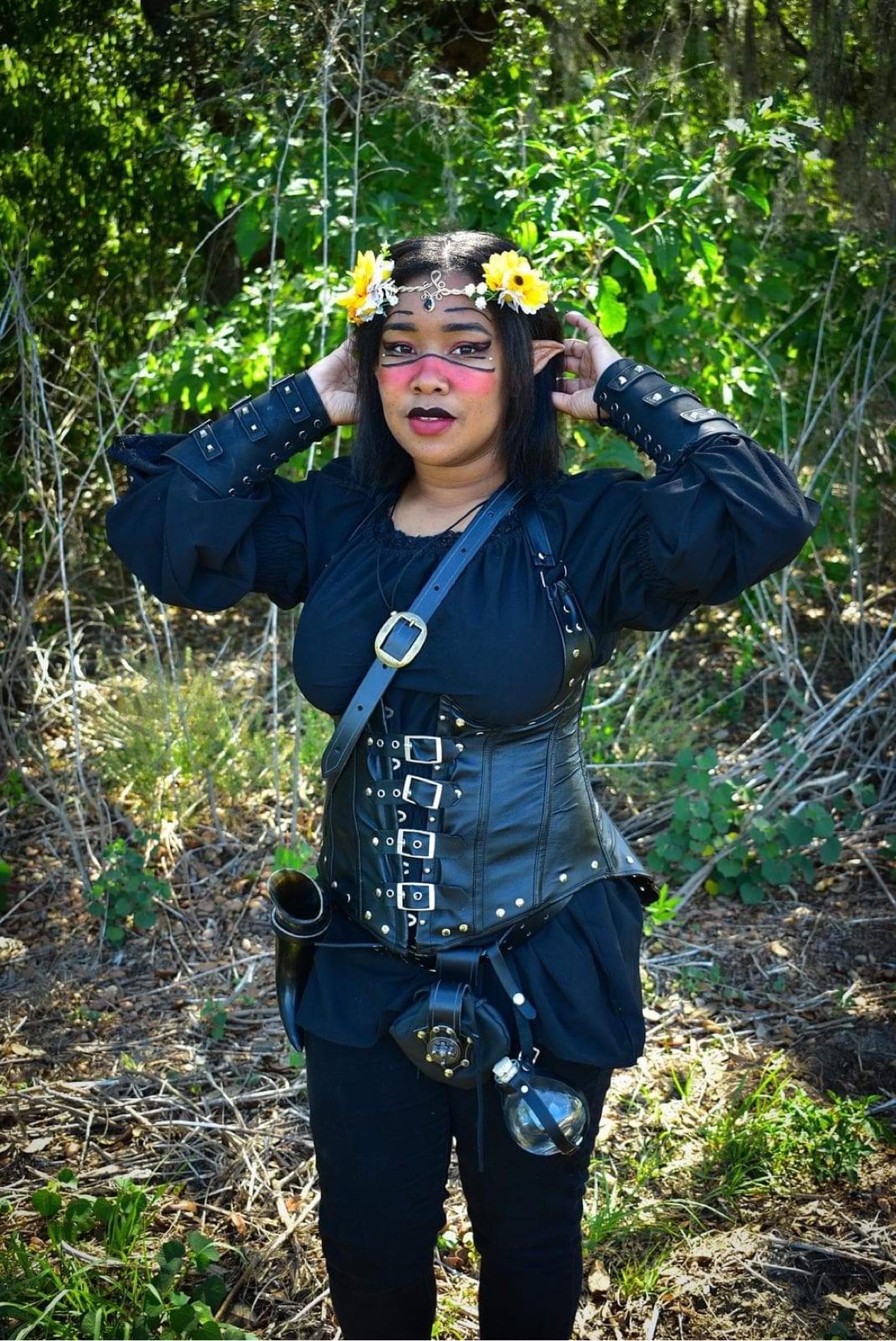
Founder of Tampa Bay Blerd Culture Jaquira Darling as a halfling elf.
Beyond attending conventions, there is a rich Blerd culture locally. Many Black cosplayers can be found on Instagram. Founder of Tampa Bay Blerd Culture Jaquira Darling started the group on Facebook in order to highlight and celebrate “black nerds in the Tampa Bay area with a shared interest in anime, comics, video games, and cosplay.”
I also suggest following Cultured Books on Instagram and Facebook, as well as following Pinellas Diaspora Arts Project on Instagram and Facebook because some of the work they do lives in the Blerd space.
And finally, listen to my latest episode of “Podcast Pedagogy” to hear the full interviews with these amazing cosplaying Blerds who were quoted above.

